
FUNGAL DIVERSITY
Scope & Guideline
Fostering Knowledge on the Interconnectedness of Fungi and Environment
Introduction
Aims and Scopes
- Taxonomy and Phylogenetics:
The journal focuses heavily on the taxonomy and phylogenetic relationships of fungi, utilizing both traditional morphological methods and modern molecular techniques to classify and understand the evolutionary history of fungal taxa. - Ecological and Environmental Studies:
Fungal Diversity publishes research that explores the ecological roles of fungi in various environments, including their interactions with plants, animals, and other microorganisms, as well as their contributions to ecosystem functioning. - Genomics and Molecular Biology:
The journal includes studies that leverage genomic data to investigate fungal evolution, species delimitation, and functional traits, highlighting the integration of molecular biology into fungal research. - Fungal Pathology and Human Health:
Research related to fungal pathogens, their interactions with hosts, and implications for human health and agriculture is a core area, addressing the impact of fungi on food security and public health. - Biodiversity and Conservation:
Fungal Diversity emphasizes the importance of documenting fungal diversity and understanding its implications for conservation efforts, particularly in underexplored regions and ecosystems.
Trending and Emerging
- Phylogenomics and Evolutionary Biology:
There is a growing focus on phylogenomic studies that delve into the evolutionary relationships among fungal taxa, providing insights into their diversification and adaptation mechanisms. - Fungal Ecology and Interaction Studies:
Research examining the ecological roles of fungi, particularly their interactions with other organisms and their impact on ecosystems, is on the rise, highlighting the importance of fungi in ecological networks. - Genetic and Functional Diversity:
Emerging themes include the exploration of genetic diversity and functional traits within fungal species, which is crucial for understanding their ecological roles and responses to environmental changes. - Human Pathogenic Fungi and Health Implications:
There is an increasing trend in studies addressing the implications of fungi for human health, particularly in the context of emerging fungal pathogens and their interactions with hosts. - Conservation and Biodiversity Assessment:
Research focused on the conservation of fungal diversity and the assessment of biodiversity in various ecosystems is gaining momentum, reflecting a broader recognition of the ecological significance of fungi.
Declining or Waning
- Traditional Morphological Studies:
There has been a noticeable decline in papers focusing solely on traditional morphological studies of fungi, as the field increasingly shifts towards molecular and genomic approaches for species identification and classification. - General Biodiversity Cataloging:
The trend of publishing broad surveys or catalogs of fungal diversity has waned, possibly due to a growing emphasis on more targeted research that addresses specific ecological questions or conservation needs. - Historical Taxonomic Reviews:
Research centered on historical taxonomic reviews without new empirical data has decreased, indicating a preference for studies that provide new insights or methodologies rather than reiterating established knowledge.
Similar Journals

MYCOSCIENCE
Pioneering Insights into Mycology and BiodiversityMYCOSCIENCE, published by the Mycological Society of Japan, is a prominent peer-reviewed journal that serves as an essential resource in the fields of ecology, evolution, behavior, and systematics, highlighted by its Q2 ranking in the 2023 category quartiles. Established in 1994 and continuing through 2024, the journal focuses on mycological research, providing insights into the interconnected worlds of fungi and their ecological roles. With an ISSN of 1340-3540 and an E-ISSN of 1618-2545, MYCOSCIENCE aims to disseminate high-quality research that addresses current issues and trends within the discipline. Despite not being an open-access journal, it makes a significant contribution to advancing fungal biology and its applications in agriculture and environmental science, making it an invaluable asset for researchers, professionals, and students alike. Located in the vibrant academic environment of Tokyo, Japan, MYCOSCIENCE stands out for its dedication to fostering a deeper understanding of mycology and its implications for biodiversity and ecosystem health.
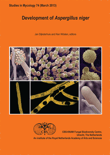
STUDIES IN MYCOLOGY
Advancing Mycological Knowledge for a Sustainable FutureSTUDIES IN MYCOLOGY is a premier journal dedicated to advancing research in the field of mycology, published by the renowned WESTERDIJK FUNGAL BIODIVERSITY INSTITUTE. With an impact factor that places it in the top quartile (Q1) of both Agricultural and Biological Sciences and Plant Science categories, it holds a prestigious position in the scientific community, ranking #1 out of 193 in its field as per Scopus metrics. Since its transition to Open Access in 2008, it has made significant strides in disseminating high-quality research widely, fostering a greater understanding of fungal biodiversity and its ecological impact. Covering a broad spectrum of topics related to mycology, the journal aims to provide researchers, professionals, and students with a platform for sharing innovative findings, stimulating academic discourse, and promoting collaborative efforts within this vital area of study. Hailing from the Netherlands, STUDIES IN MYCOLOGY serves as an invaluable resource for exploring the complexities of fungi, their interactions with various ecosystems, and their practical applications in agriculture and beyond.
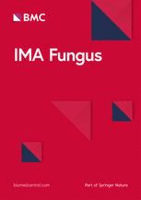
IMA Fungus
Exploring the Intricacies of Fungi and Ecosystems.IMA Fungus is an esteemed open-access journal published by BMC, dedicated to advancing research in the fields of fungi, plant sciences, and ecological systems. With an ISSN of 2210-6340 and E-ISSN 2210-6359, this journal has been an influential platform since its inception in 2010, contributing significantly to the scientific community in the United States and beyond. The journal’s remarkable impact can be seen in its Q1 quartile rankings across multiple categories, including Agricultural and Biological Sciences, Ecology, Evolution, Behavior and Systematics, and Plant Science, positioning it among the top literary sources in these fields. Notably, IMA Fungus holds impressive Scopus rankings, with the Agricultural and Biological Sciences category placing it in the 98th percentile, evidencing its crucial role in disseminating impactful research. Given its commitment to fostering accessibility and collaboration, IMA Fungus continues to be an invaluable resource for researchers, professionals, and students aiming to explore and understand the complex roles of fungi within various ecosystems.

Frontiers in Fungal Biology
Exploring the Hidden World of FungiFrontiers in Fungal Biology is an innovative academic journal dedicated to advancing the field of mycology and its interdisciplinary connections, published by FRONTIERS MEDIA SA. With an E-ISSN of 2673-6128, this journal focuses on exploring diverse aspects of fungal biology, including ecological roles, evolutionary processes, and interactions with other organisms. Since its inception in 2020, Frontiers in Fungal Biology has garnered attention within the scientific community, earning a commendable Q2 ranking in both Ecology, Evolution, Behavior and Systematics, and Environmental Science categories in 2023, alongside respectable Q3 rankings in Infectious Diseases and Microbiology. The journal is committed to open access principles, making cutting-edge research freely available to a global audience, promoting knowledge sharing and collaboration. By providing a platform for rigorous research and impactful discussions, Frontiers in Fungal Biology aims to enhance the understanding of fungi and their significant roles in ecosystems, health, and biotechnology, appealing to researchers, professionals, and students alike.
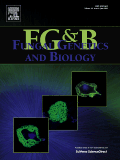
FUNGAL GENETICS AND BIOLOGY
Advancing the Frontiers of Fungal ResearchFungal Genetics and Biology is a leading peer-reviewed journal published by Academic Press Inc, Elsevier Science, dedicated to advancing the understanding of fungi through innovative genetic and biological research. Since its inception in 1996, this journal has served as a vital platform for the dissemination of critical findings in the fields of Genetics and Microbiology, maintaining a distinguished Q2 category ranking in both disciplines as of 2023. With an ISSN of 1087-1845 and an E-ISSN of 1096-0937, the journal emphasizes the intersection of genetics and molecular biology to explore fundamental questions related to fungal biology that are of paramount importance to various applications in biotechnology, medicine, and environmental science. Researchers, professionals, and students alike will find this journal invaluable as it not only covers current trends and breakthroughs but also encourages collaborative efforts across the scientific community. Fungal Genetics and Biology continues to shape the future of fungal research well into 2024 and beyond, offering rich insights and open access options for a global audience.

European Journal of Taxonomy
Empowering researchers with accessible ecological insights.The European Journal of Taxonomy is a distinguished open access journal, published by the MUSEUM NATL HISTOIRE NATURELLE in France, dedicated to the rich and dynamic field of taxonomy, ecology, and systematics. Since its inception in 2011, this journal has aimed to provide a platform for the dissemination of high-quality research and innovative methods relevant to the study of biodiversity and species classification. With a commendable Q2 ranking in the Ecology, Evolution, Behavior and Systematics category as of 2023, the journal ranks 380 out of 721 in Scopus, highlighting its pivotal role in advancing scientific knowledge in these essential areas. Researchers and students alike will find valuable resources and contributions that address pressing ecological and evolutionary questions from 2015 to 2024. By promoting open access, the European Journal of Taxonomy ensures that vital research is accessible to a broader audience, fostering collaboration and discourse among professionals striving to enhance our understanding of the natural world.
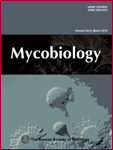
MYCOBIOLOGY
Unveiling the Secrets of Fungal BiologyMYCOBIOLOGY is an esteemed open-access journal published by Taylor & Francis Ltd, specializing in the fields of Infectious Diseases, Microbiology, and Plant Science. Since its inception, the journal has provided a platform for innovative research, showcasing a diverse range of studies that delve into the complexities of mycology and its vast implications on health, agriculture, and the environment. With a commendable impact factor and a Q2 ranking in Plant Science as of 2023, MYCOBIOLOGY facilitates the dissemination of vital findings to a global audience of researchers, professionals, and students. In addition to its commitment to high-quality content, MYCOBIOLOGY has embraced open access since 2018, ensuring that the latest advancements in mycological research are readily available to the academic community and the public. By bridging gaps in knowledge and fostering collaboration across disciplines, MYCOBIOLOGY plays a crucial role in advancing our understanding of fungal biology and its myriad applications.
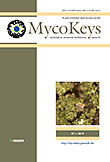
MycoKeys
Pioneering discoveries in fungal biology and ecosystems.MycoKeys, published by PENSOFT PUBLISHERS, is a leading open-access journal dedicated to advancing the understanding of fungal biology and its diverse implications within agricultural, ecological, and biological sciences. With its ISSN 1314-4057 and E-ISSN 1314-4049, this journal has achieved remarkable academic prestige, reflected in its 2023 Scopus rankings placing it in the first quartile (Q1) across several categories, including Agricultural and Biological Sciences (miscellaneous), Ecology, Evolution, Behavior and Systematics, and Plant Science. MycoKeys provides a platform for researchers, professionals, and students interested in the latest findings and methodologies regarding fungi, their environments, and their interactions within various ecosystems. Since its transition to open access in 2011, the journal has championed the dissemination of high-quality research to a global audience, fostering collaboration and innovation in mycology. With a publishing history that converges from 2015 to 2024, MycoKeys remains a vital resource for those committed to exploring the multifaceted roles fungi play in our world.
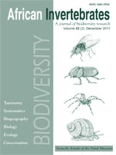
AFRICAN INVERTEBRATES
Pioneering Insights into Africa's Unique FaunaAFRICAN INVERTEBRATES is a distinguished open-access academic journal published by the COUNCIL NATAL MUSEUM, specializing in the study of invertebrate biology within the vibrant ecosystems of Africa. Operating since 2006, this journal has established itself as a vital resource in the fields of Animal Science, Ecology, Evolution, Behavior, Insect Science, and Paleontology, earning a strong Q2 ranking in these categories as of 2023. With its ISSN 1681-5556 and E-ISSN 2305-2562, the journal provides unrestricted access to cutting-edge research, fostering collaboration among global researchers and professionals. AFRICAN INVERTEBRATES serves not only as a platform for high-quality scholarly articles but also aims to enhance the understanding of Africa's unique invertebrate fauna and the ecological challenges they face. With a commitment to innovation and excellence, the journal is pivotal for those looking to contribute to the discourse surrounding African biodiversity and conservation strategies.
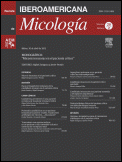
REVISTA IBEROAMERICANA DE MICOLOGIA
Illuminating the World of Fungi and Their ImpactREVISTA IBEROAMERICANA DE MICOLOGIA, published by the ASOCIACION ESPANOLA MICOLOGIA-AEM, is a vital resource for those engaged in the study of mycology and infectious diseases. With a history spanning from 1996 to 2024, this journal is committed to advancing knowledge in the field through the dissemination of high-quality research articles, reviews, and case studies. Although it currently features a Q3 ranking in Infectious Diseases and a Q4 ranking in Microbiology for 2023, its impact is significant given the niche focus it serves, catering to a specialized audience of researchers and practitioners. While access is not open, the journal continues to be a preferred platform for scholarly communication among professionals in Spain and beyond. The editorial office, located in Bilbao, serves as the hub for rigorous peer-review and publication processes, ensuring that the latest advancements and findings in the field of mycology are effectively shared within the scientific community.